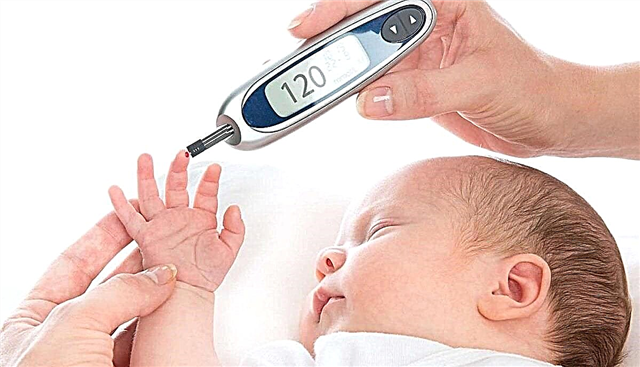
The balance of the female genital organs is very important both at the stage of preparation for the conception of a baby, and already during pregnancy. One of the important hormonal substances is 17-OH progesterone. This article will help women understand why this clinical indicator is assessed, and what are the reasons for its deviations.

About hormone
This hormonal substance belongs to steroids in its chemical structure. It is an intermediate step in the metabolism of various progesterone metabolites. This substance appears at the stage of conversion of hydroxypregnenolone and progesterone.
In the female body, there are several internal structures responsible for the appearance of this hormone in the blood. One of them is the adrenal cortex. This organ is involved in the formation of many steroid hormones, including 17-OH progesterone. This substance is formed with the participation of the reticular zone, together with other biologically important androgenic components.
During pregnancy, another organ appears that can synthesize (form) this substance. It is the placenta. Through it, the developing baby receives all the nutritional components necessary for his growth and development.


The placenta produces these hormones in the amount necessary for the growth and development of the baby. It should be noted that this leads to a gradual increase in the concentration of 17-OH progesterone in the blood during pregnancy.
Only a few weeks before giving birth, his indicators begin to decline. Such a physiological reaction of the female body is a specific preparation for the upcoming birth of a baby.
The most short-term organ influencing the appearance of this hormone in the blood is the corpus luteum. His work is largely determined by the phases of the woman's menstrual cycle.
The corpus luteum is actively functioning after ovulation and before the onset of menstruation. In the future, there is a change in the phase of the menstrual cycle, leading to a change in the concentration of female hormones in the blood.

Why is it being evaluated?
A significant deviation of the 17-OH concentration in the blood from normal values requires a mandatory visit to a doctor. In such a situation, it is required to identify the cause that led to the development of this violation.
For this, the doctor will prescribe the expectant mother to undergo additional tests and undergo instrumental studies. The list of them depends on the initial state of the woman, as well as the possible reason that led to the development of these violations.
This metabolite of progesterone has a significant effect on the female body. It is important to separate the arising violations by the time of their occurrence. In non-pregnant women, some reasons can lead to a change in the concentration of 17-OH progesterone in the blood, while in pregnant women, completely different ones. However, in either case, you cannot do without consulting a doctor.
At the stage of pregnancy, doctors must take into account in which period the woman had these disorders. So, a significant drop in the level of this hormone in the blood of an expectant mother in the first half of the intrauterine development of the baby can even lead to detachment of the placenta. The risk of embryo death in such a situation is also quite high.

In what cases are tests required?
Determination of 17-OH progesterone in the blood is not carried out for all women. There are certain medical indications for such a study. The necessity of prescribing this test is determined by the attending physician during the clinical examination and collection of anamnesis.
Quite often, the level of this hormone in the blood of women suffering from infertility is determined. If the patient has any secondary signs of hormonal disorders, then this study is mandatory for her. One of these clinical signs may be the appearance of excess body hair growth in the male pattern.
The doctor prescribes an analysis to determine the level of 17-OH progesterone also for women with any adrenal diseases. Endocrinologists are engaged in the treatment and diagnosis of such pathologies. Monitoring the concentration of 17-OH progesterone in the blood is also necessary in the case of already prescribed therapy with glucocorticosteroid drugs. In such a situation, control of the effectiveness of the prescribed therapy is determined.
Hormonal disruption accompanied by absence or delay of menstruation, is one of the indications for an analysis to determine the level of this hormone in the blood. Such a study is prescribed by a gynecologist. Determination of pathology may also require the determination of other female hormones.

Any neoplasms and ovarian cysts are another clinical indication for an analysis to determine the level of this hormone in the blood. In this case, a mandatory transvaginal ultrasound scan will also be required to establish the correct diagnosis.
Normal indicators
Female hormonal levels are never constant. Fluctuations in hormone levels occur in the body almost every second. The level of 17-OH progesterone also changes. Scientists have found that the change in its concentration can be even during the day.
The concentration of this hormone is influenced not only by gender, but also by age. The phase of the menstrual cycle also has a strong influence on its blood level. After ovulation, as well as in pregnant women, the indicators of this hormone are significantly higher.

The rate of this indicator largely depends on the period of a woman's life. In the second period of the menstrual cycle, the concentration in the blood of this hormone is 0.3-3 ng.
Normal pregnancy rates depend on the period:
- In the 1st trimester, the rate of this hormone in the blood is 1.3-3 ng.
- By the second, the level rises to 2-5 ng.
- In the 3rd trimester, the normal values of this hormone in the blood are 5-8.4 ng.
The test should be taken on an empty stomach. Before going to the laboratory, the woman can drink some water. For the study, venous blood is required. On the evening before going to the laboratory, you should not eat too fatty and fried foods. This can lead to less reliable biochemical test results.

Why do violations occur?
The work of the adrenal cortex, the main organ that is responsible for the production of many steroid hormones, largely depends on external influences. Scientists have found that even severe stress, prolonged feeling of danger, persistent anxiety, and very pronounced fear can lead to a change in the concentration of various steroids.
The level of these hormones in the blood is much higher in people who are actively and professionally involved in sports.

If a woman is constantly and daily under intense stress, this may also affect the fact that the level of 17-OH progesterone in her blood will be elevated.
Participation in conflict situations can also contribute to an increase in this hormone in the blood. A short-term but very intense psycho-traumatic factor has a strong effect on the adrenal cortex. This contributes to the fact that the level of many steroid hormones rises.
A significant increase in the concentration of 17-OH in the bloodstream can cause various adverse clinical manifestations. One of these disorders is a persistent decrease in immunity.

In this case, the susceptibility to various infections increases significantly. Women who fall ill with colds and respiratory diseases several times during the year should definitely consult a doctor about the need to check their level of female sex hormones in their blood.
Decrease in memory and attention is another characteristic symptom that can develop with this pathological condition. These manifestations are due to the negative impact of high concentrations of this hormone on special areas of the brain.
Scientists have found that high levels of 17-OH progesterone can even lead to a change in taste preferences. An increase in the concentration of this hormone in the blood leads to malfunction of the receptors located in the oral cavity. This symptom may be manifested by a woman's tendency to often eat too spicy, spicy or acidic foods.


A decrease in the concentration of this hormone in the blood can be caused by various causal factors. One of them is various heart rhythm disorders.
In women suffering from a severe form of arrhythmia, a decrease in this hormone in the blood is possible. The development of this situation is caused by pronounced disorders of systemic blood flow that develop with this pathology.
Other diseases of the cardiovascular system can also contribute to a decrease in this hormone in the blood. Thus, a persistent increase in blood pressure over a long period of time can also cause a slight decrease in the level of 17-OH progesterone in the blood.
In the next video, the obstetrician-gynecologist talks about the role of progesterone in the development of pregnancy in a woman.



